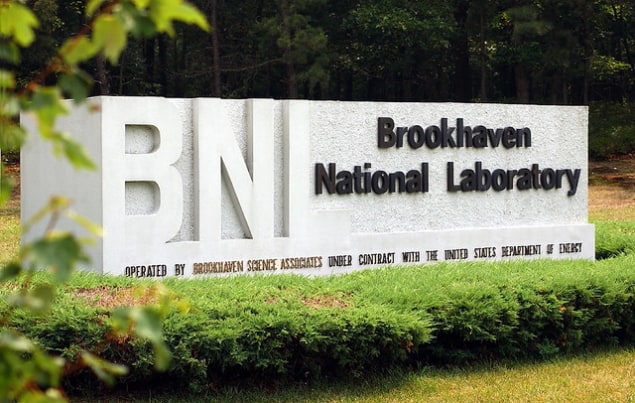
Two technicians are suing Brookhaven National Laboratory (BNL) and two manufacturers of cleaning products after saying that the substances damaged their health. The technicians used fluids containing trichloroethylene (TCE) to clean and maintain BNL’s supercomputers. They claim, however, that they received no warnings about the dangers of TCE and that they were not supplied with safety gloves and other forms of protection despite the lab and the manufacturers allegedly knowing about its potential for harm.
Last month, 61-year-old Joseph Marino, who worked at BNL in 1999 and 2000, filed a $25m suit against Associated Universities, Inc (AUI) — the organization that previously managed Brookhaven — and TCE manufacturers Dow Chemical and Zep Inc. Marino lost his right kidney to cancer and has a damaged left kidney, both of which he attributes to his exposure to TCE at BNL. Another former technician, Ron Yuhas, 77, who spent 42 years at the lab and has cystic kidney disease and gastrointestinal problems, filed a similar suit last week.
It’s clear that the technicians really didn’t think twice about this product they were using throughout the laboratory; it worked well
Jaehyun Oh
The US Environmental Protection Agency (EPA) lists TCE as “carcinogenic to humans by all routes of exposure”. Conditions that can result from exposure to TCE include cancers of the bladder, liver and pancreas, heart abnormalities and damage to the immune system. The court filings by the technicians’ lawyers say they were exposed to the compound via the inhalation of vapours, absorption through ungloved hands and ingestion by mouth of tiny droplets in TCE sprays.
“Toxic exposure”
Joseph Lanni, an attorney with New York City’s Jacob Fuchsberg Law Firm, who represents about a dozen former employees, asserts that BNL managers “clearly knew” that TCE was a health threat. “The problem was that the workers had no knowledge that TCE was determined to be toxic to humans years ago and long suspected as a carcinogen,” says Lanni. “The Department of Energy banned TCE close to 30 years ago, yet AUI continued to stock it because it was an effective cleaner.” The lawsuits claim that the technicians are now suffering “the latent effects of the toxic exposure”.
Jaehyun Oh, a lawyer who works with Lanni, says it is “striking” how many former workers have kidney-related issues. “It’s clear that the technicians really didn’t think twice about this product they were using throughout the laboratory; it worked well,” she says. New York State authorities have taken notice of the technicians’ complaints with some of them obtaining limited workers’ compensation payments related to their health conditions. Marino, for example, has received $47 500 and a small annual payment from the state’s workers’ compensation board. But he complains that it scarcely covers his medical expenses. Lanni adds that state boards has denied compensation to many other technicians. “We’re trying to give ex-workers some measure of justice – and adequate compensation,” he says. Tale of two anniversaries
The lab has suffered several spills of TCE, and groundwater outside its boundaries contains a plume of the chemical. When Physics World contacted BNL, lab spokesperson Pete Genzer declined to comment. TCE has recently emerged as an issue beyond Brookhaven. During President Barack Obama’s administration, the EPA proposed banning its use in degreasing and spot-dry cleaning. But the Trump administration has indefinitely delayed any restrictions on the compound. That, say critics, discourages organisations from substituting safer cleaning and degreasing alternatives and exposes perhaps 178 000 workers to the chemical’s effects on human health.




